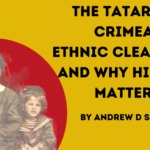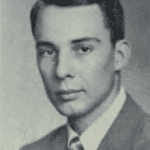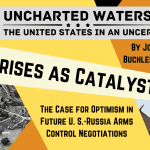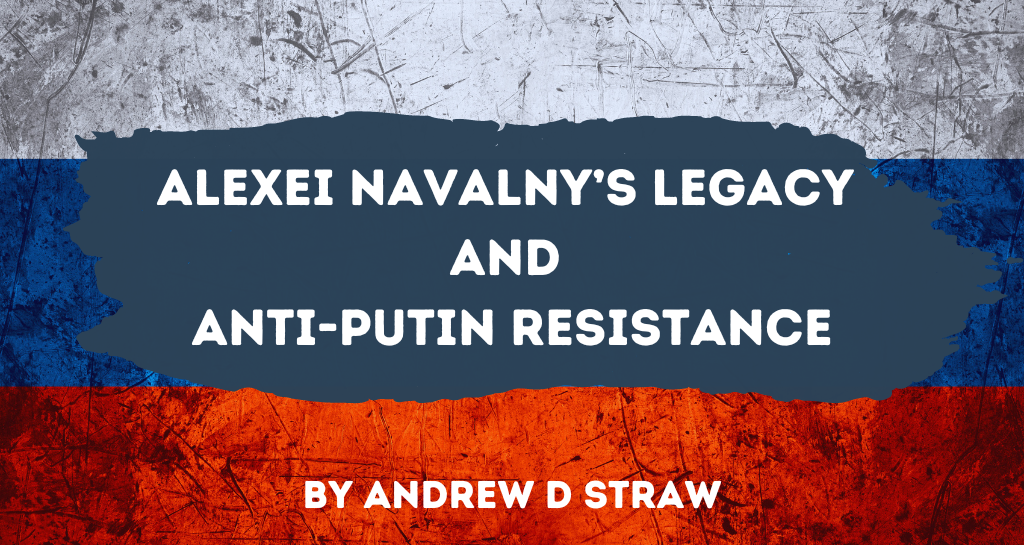
Moscow’s southeast neighborhoods of Maryino and Lyublino always seem to be where the authorities locate controversial events. On March 1, 2024, it was Maryino who hosted the funeral of Russian dissident Alexei Navalny. The church that held the ceremony is a post-Soviet building and dominates the center of a neighborhood otherwise filled with high-rise apartments, broad streets, shopping centers, and a string of parks and ponds along the Moscow River. On the day of the funeral, striking photos showed the lines of people paying their respects against the backdrops of apartment blocks. Other photos soon appeared online from inside the church despite authorities forbidding photography. Having world historical events occur in a neighborhood you usually associate with medical visits, shopping, haircuts, and eating Uzbek food and sushi is surreal. With Navalny’s death, however, my wife and I also had a grim sense of both déjà vu and inevitability.
When assassins shot journalist Anna Politkovskaya at her home in central Moscow in 2007, I was teaching English to cheery businesspeople a few blocks away.[1] When assassins shot politician Boris Nemtsov on a bridge by the Kremlin in 2015, I was researching in the Moscow archives. My reaction was writing a post for Not Even Past about how Russian TV coverage immediately made light of Nemtsov’s “ladies’ man” reputation.[2] Over the next month, I walked past the murder scene to view the mound of flowers on the sidewalk. The pile was usually small because the city ordered the street cleaners to remove them daily. When we awoke to Navalny’s death on February 16, we were saddened but not very surprised.

Source: Wikimedia Commons
Born to a Ukrainian father and a Russian mother, Navalny was involved with several political parties before gaining international attention for leading protests against fraud in the 2011 Russian parliamentary elections. His profile rose in 2013 as he became a candidate for the Moscow mayoral position. Afterward, he organized protests and investigated corrupt politicians while facing increasing legal troubles and threats. Navalny believed that Putin had him poisoned in August 2020, leading him to nearly die. He sought medical care in Germany even as Russian authorities seized his assets and apartment.[3] So why did Navalny return to Russia knowing he would face certain imprisonment and likely death?
Political dissidents making a crucial choice about remaining in exile or returning home have a long history that weaves through the Russian Imperial and Soviet periods to the present. Vladimir Lenin and Leon Trotsky were in exile in Switzerland and Brooklyn, respectively, when the February Revolution overthrew Tsar Nicholas II in 1917. They only returned home (Lenin with German assistance) after the government had fallen. During Joseph Stalin’s rule in the Soviet Union, Trotsky was forced into exile once again, this time to Mexico City, where he was assassinated in 1940. Historian Barbara Martin has highlighted how Soviet dissidents such as Alexander Solzhenitsyn and Roy Medved faced this conundrum in the post-Stalinist Soviet Union. While life in exile was safer and provided academic and political freedoms, leaving felt like a dereliction of duty or abandoning your home. It also lessened dissidents’ authority among their fellow citizens.[4] Navalny seemed to take this point to heart and hence accepted the risk of confrontation with the regime, likely believing that his brave anti-Putin legacy would be cemented even at great personal risk.
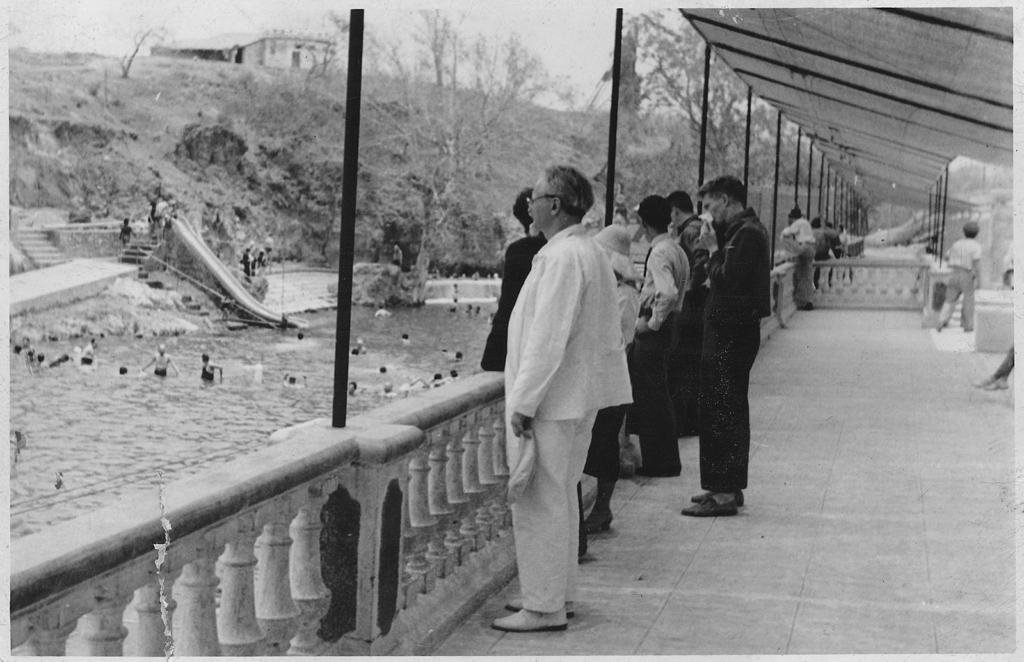
Source: Wikimedia Commons
Navalny’s return to Russia in January 2021 was stunningly brave, even as the end result was strikingly predictable. However, he is also a complex figure, and his actions, words, and legacy are intertwined in a set of wider issues and conflicts.
Consider for a moment the Russians in the apartments overlooking his funeral, not the mourners. Assessing Navalny’s popularity through Russian opinion polls, many of them problematic, is difficult.[5] But as I lived and visited Russia, even during Navalny’s poisoning, exile, return, and arrest saga, I heard many people expressing negative voices against him. Some recurring comments were skepticism about his anti-corruption campaigns or the simple belief that he was just another self-aggrandizing politician. With the 2014 Maidan Revolution in Ukraine, the Russian occupation of Crimea, and the Russian intervention in Eastern Ukraine, cynicism turned to accusations of treason and other conspiracy theories, all repeated in various iterations in the Russian official media.
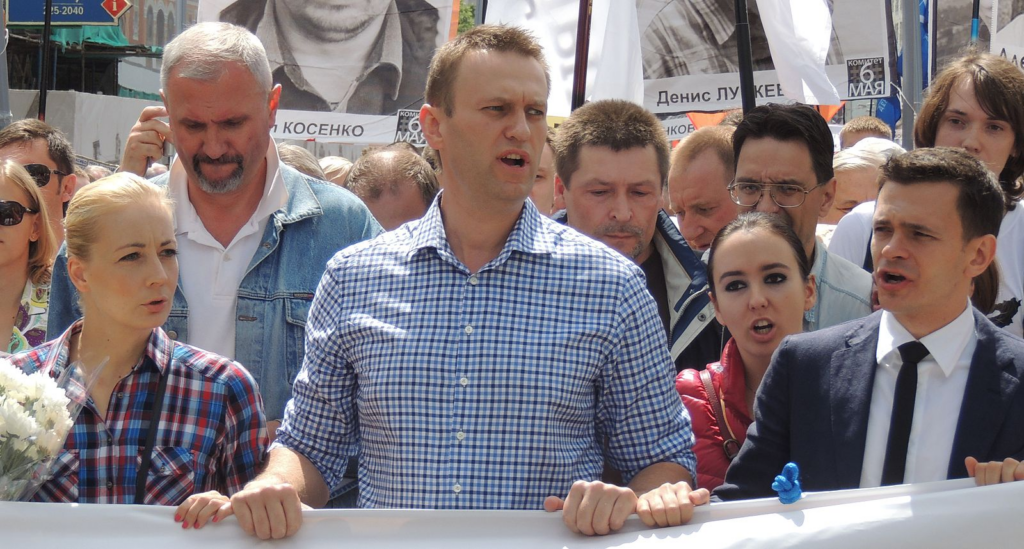
Source: Wikimedia Commons
Part of this seems obvious. Russia’s full-scale invasion of Ukraine in 2022 solidified the state media’s portrayal of Navalny as a foreign agent. Furthermore, numerous new laws have designated Navalny, his organization, and most anti-Putin journalists and organizations as treasonous foreign terrorists acting on behalf of the West or Ukraine. The onslaught of such accusations wears people down. And yet, sociologist Jeremy Morris argues that his contacts’ reaction to Navalny has little to do with propaganda. Many Russians simply dislike Navalny’s image and consider his campaigns naïve and inconsequential.[6] In other words, you can trust that conversations with Russians in Russia about his death are often very different than the coverage by non-Russian media.
Aside from propaganda and everyday anti-Navalny sentiment, his politics and statements have also been a point of contention among other anti-Putin politicians and activists. While Navalny is often portrayed as a stereotypical “Russian liberal,” earlier in his political career, he spoke the language of Russian ethno-nationalism. He amplified racial stereotypes directed towards Russia’s large immigrant and Muslim communities, as well as its other numerous non-Russian ethnic groups. He attended the far-right Russian marches, which blamed most of Russia’s ills on immigrants and called for mass deportations. He moderated such stances over time and apologized. Still, his early remarks defined his image for many non-Russian ethnic groups within and outside of Russia.[7] Even as his wife, Julia Navalnaya, took the reigns of his organization, the question of where non-ethnic Russians stand within their vision of Russia remains uncertain.[8]

In the context of the Russian occupation of Crimea in 2014, Ukrainians and Crimean Tatars (the indigenous Muslim minority of Crimea) had good reasons to be skeptical of his denunciations of the full-scale Russian invasion in February 2022. Beginning with the 2014 occupation of Crimea, Navalny had denounced Russian methods but echoed the Russian nationalist ethos that Russia and Crimea possessed a kind of supernatural bond.[9] As someone who was researching Stalin’s ethnic cleansing of Crimea at the time the occupation began, this was disappointing, to say the least. He made such statements as Russian authorities began a new wave of repressions, arrests, and sometimes murders of Crimean Tatars, Crimean Ukrainians, and Russians who protested Putin.[10]
One point that many of Navalny’s varied detractors may agree on (albeit for different reasons) is that the Western media is too focused on Navalny himself and less on the audiences he represents. At the very least, the acknowledgment of Navalny should come with a recognition of the bravery and defiance of individuals and victims outside the media spotlight. There are thousands of other political prisoners in Russia and occupied Ukraine, and Putin’s army and occupation kill Ukrainians every day. These prisoners suffer from malnourishment, torture, and death. In Ukraine, the use of torture, rape, and mass executions is now well documented.[11] In Russia, dissident Vladimir Kara-Murza is now serving a 25-year sentence for condemning the war and has become chronically ill.[12] Last year, Crimean Tatar activist Dzhemil Gafarov died in a southern Russian prison after being tortured and denied medical release.[13] The list of absurd arrests for anti-war activities is far too long to recount here. One of the latest examples is the 7-year prison sentence for Russian poet Alexander Byvshev, who questioned the morality of Russia’s invasion.[14] In other words, the legacy of sacrifice and resistance to Putin is multi-national and multi-ethnic in scope and is far more diverse and broad than just Navalny, the individual.

Source: Wikimedia Commons.
In the month since his death, Russia-related news has remained grim. Russian attacks have killed dozens of Ukrainian civilians and left the country’s second-largest city, Kharkiv, without power. Putin has “won” his latest election with absurd margins. He used the election celebrations to signal “enthusiastic voting” in Russian-occupied Ukraine and, almost with a sense of accomplishment, finally mentioned the now-deceased Navalny by name. However, the events of last week showed that Putin does not control everything in Russia. ISIS-K militants launched a horrific terrorist attack on a Moscow concert venue, killing well over 100 people. Putin’s reaction has been a confused mix of attempting to blame Ukraine and the West, while Russian society and the state have descended into targeting Muslim immigrants and ethnic minorities with threats, deportations, and violence.
Both Russia’s present and its future seem grim. That is perhaps when it is best to think of Alexei Navalny. If nothing else, a consensus seems to have developed that Navalny was remarkable for being a Russian optimist and having the audacity, no matter how flawed or naïve, to believe that Russia’s current course could be reversed. Realistic or not, I do think about that possibility every day and whether – just maybe – there might be some truth to his belief.
Andrew Straw is a historian of Soviet Crimea. He has taught courses on Russian and Soviet history at the University of Texas and Huston-Tillotson University. At the moment, he teaches high school world history and is an instructor for the University of Texas OnRamps history program. He continues research as an independent scholar and is preparing a book proposal that will focus on Stalin’s Crimea policy and Crimean Tatars in the immediate postwar period. He can be reached at astraw@utexas.edu or on Twitter at @astrawism1
[1] https://www.iwmf.org/community/anna-politkovskaya/
[2] https://notevenpast.org/tag/boris-nemtsov/
[3] https://www.bbc.com/news/world-europe-54369664.amp
[4] https://www.bloomsbury.com/us/dissident-histories-in-the-soviet-union-9781350192447/
[5] https://www.levada.ru/2021/02/05/vozvrashhenie-alekseya-navalnogo/
[6] https://postsocialism.org/2024/02/16/russia-lost-its-greatest-and-most-naive-optimist-a-curmudgeons-obituary-of-alexei-navalny/
[7] https://www.euronews.com/2023/07/07/racist-or-revolutionary-is-alexei-navalny-who-many-westerners-think-he-is
[8] https://www.themoscowtimes.com/2024/02/29/navalnys-difficult-relationship-with-indigenous-russians-a84291
[9] https://www.themoscowtimes.com/2023/03/07/navalnys-policy-shift-on-crimea-may-be-too-little-too-late-a80396
[10] https://unn.ua/en/news/at-least-60-people-died-from-repressions-in-crimea-during-russian-occupation-ctrc
[11]https://www.theguardian.com/commentisfree/2024/mar/25/russia-weaponising-sexual-violence-ukraine-values
[12] https://www.npr.org/2023/04/17/1168667764/vladimir-kara-murza-prison-sentence
[13] https://khpg.org/en/1608812709
[14] https://www.reuters.com/world/europe/russian-anti-war-poet-gets-seven-year-jail-term-over-poem-ukraine-war-2024-03-22/
The views and opinions expressed in this article or video are those of the individual author(s) or presenter(s) and do not necessarily reflect the policy or views of the editors at Not Even Past, the UT Department of History, the University of Texas at Austin, or the UT System Board of Regents. Not Even Past is an online public history magazine rather than a peer-reviewed academic journal. While we make efforts to ensure that factual information in articles was obtained from reliable sources, Not Even Past is not responsible for any errors or omissions.
